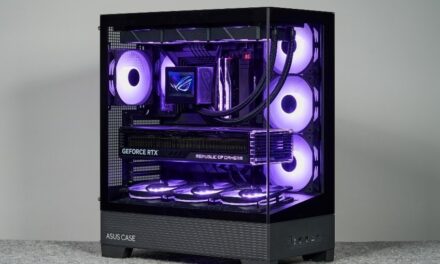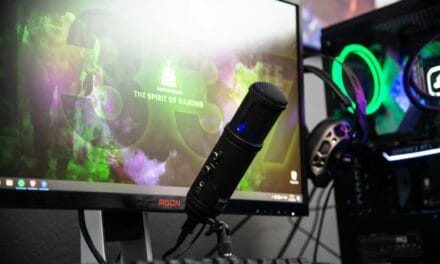
Why Hasn’t the Steam Deck Fully Disrupted the Gaming Market?

The gaming industry is constantly evolving, with new technologies and devices revolutionising the way we play. One such device that has garnered a lot of attention is the Steam Deck. Developed by Valve Corporation, the Steam Deck aims to bring the vast library of PC games to a handheld device.
While the Steam Deck has generated excitement among gamers, it has yet to fully disrupt the gaming market. In this article, we’ll explore the reasons behind the Steam Deck’s limited impact and why it hasn’t completely revolutionised the gaming industry.
Hardware Limitations and Performance
One of the main challenges the Steam Deck faces is hardware limitations and performance issues. While it aims to provide a portable PC gaming experience, it is still a handheld device with inherent constraints. The smaller form factor of the Steam Deck means that it cannot match the raw power and performance of high-end gaming PCs or even dedicated gaming consoles like the PlayStation 5 or Xbox Series X.
This hardware limitation results in compromises in graphical fidelity and overall performance, which may deter hardcore gamers who value the best possible gaming experience.
Limited Game Compatibility
Another factor that hinders the Steam Deck’s disruption is limited game compatibility. While the Steam Deck aims to bring the vast library of PC games to a handheld device, not all games will work seamlessly on the platform.
PC games, especially those developed with specific hardware configurations in mind, may encounter compatibility issues or require additional tweaks to run optimally on the Steam Deck. This limited game compatibility can be a barrier for gamers who want a seamless and hassle-free gaming experience.
Competition Is Tough in the Gaming & iGaming Industry
The gaming market is already dominated by established consoles like the PlayStation and Xbox. These consoles have a loyal fan base, extensive game libraries, and strong developer support. The Steam Deck faces fierce competition from these consoles, which have a well-established presence in the market. Think about it – if you wanted to learn how to play baccarat, which platform would you go to? The Steam Deck is likely not your first choice.
Gamers who are already invested in a particular console ecosystem may be less inclined to switch to the Steam Deck, especially considering the limitations mentioned earlier. The loyalty and brand recognition associated with established consoles make it challenging for the Steam Deck to disrupt the market fully.
Price and Accessibility
Price and accessibility are crucial factors that can determine the success of a gaming device. While the Steam Deck offers a portable PC gaming experience, it comes with a significant price tag. The initial cost of the Steam Deck may deter some gamers who are looking for a more affordable gaming option.
Additionally, the availability and distribution of the Steam Deck could pose challenges, as it may not be as easily accessible as mainstream consoles. Limited availability and high prices can limit the reach and adoption of the Steam Deck, hindering its potential to disrupt the gaming market.
Need for Developer Support
For a gaming device to truly disrupt the market, it needs strong support from developers and publishers. While the Steam Deck runs on a familiar PC platform, it still requires developers to optimise their games for the handheld device.
Developer support is essential to ensure a smooth and enjoyable gaming experience on the Steam Deck. Without extensive support from developers, including the adaptation of games to the handheld form factor and control scheme, the Steam Deck may struggle to attract gamers looking for a diverse and engaging game library.
To sum up; while the Steam Deck has generated excitement and intrigue within the gaming community, it has yet to fully disrupt the gaming market due to a whole range of reasons.
The hardware limitations, limited game compatibility, competition from established consoles, price and accessibility factors, and the need for developer support have all contributed to the Steam Deck’s limited impact, and it’s going to be difficult for the Steam Deck to overcome these challenges without significant innovation.
However, it’s important to note that the gaming industry is dynamic and constantly evolving. With future iterations, improvements in technology, and stronger developer support, the Steam Deck or similar devices may have the potential to bring a true revolution to the gaming market. Until then, it remains a niche offering for a specific segment of gamers who value the portability and convenience it provides.



























